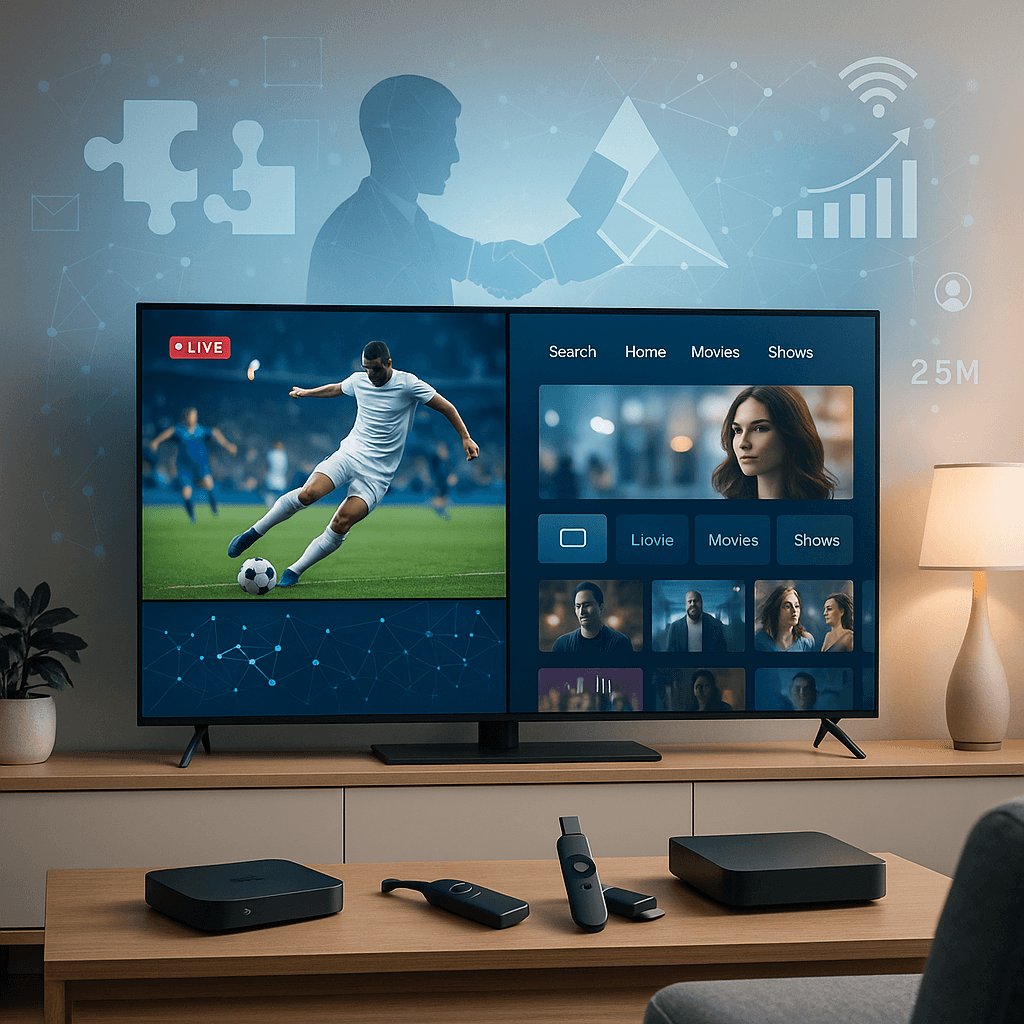Fubo shareholders just approved the streaming service's merger with Disney's Hulu Live TV, clearing a major hurdle for a deal that could reshape the live TV streaming landscape. The January-announced transaction creates a 6-million-subscriber powerhouse aimed squarely at YouTube TV's 10-million-user dominance, with Disney taking a 70% stake in the combined entity.
Fubo shareholders just handed Disney the keys to reshape live TV streaming. The Tuesday vote approving Fubo's merger with Hulu Live TV marks the biggest consolidation move in the cord-cutting wars since streaming began cannibalizing cable.
The deal, first announced in January, creates a formidable challenger to YouTube TV's streaming dominance. YouTube TV commands roughly 10 million subscribers thanks largely to its sports programming lineup. The merged Fubo-Hulu Live TV entity brings about 6 million subscribers under one roof - still trailing, but suddenly a much more credible threat.
For sports fans, this could mean better options on the horizon. Sources close to the deal suggest Fubo's exploring a new Hulu-branded package that would bundle Disney's streaming trio - Disney+, Hulu, and ESPN - at no extra cost for subscribers. The company recently launched a skinny sports-only package at a lower price point, signaling its push to capture different viewer segments.
The streaming wars have been brutal for smaller players. Traditional cable's collapse created dozens of streaming services, but only the biggest platforms with premium content libraries have survived the subscriber churn. This merger represents that harsh reality - consolidate or get crushed by the tech giants.
Disney emerges as the clear winner, gaining approximately 70% ownership of the combined entity while keeping Fubo CEO David Gandler in charge of day-to-day operations. That's a savvy move - Gandler built Fubo into a sports streaming powerhouse, and Disney needs that expertise as it battles for live TV market share.
But Tuesday's shareholder approval is just step one. The deal still faces regulatory scrutiny from antitrust officials who've been increasingly skeptical of media consolidation. The merger would reduce the number of independent streaming players and concentrate more market power in Disney's hands - exactly the kind of deal that triggers regulatory alarm bells.












